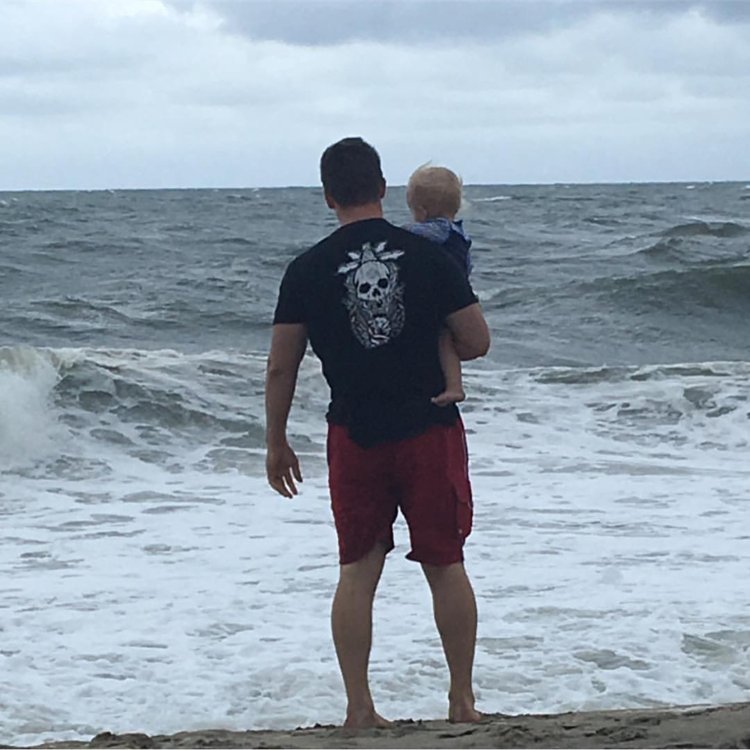I never thought the transition to civilian life would be something that would contain much struggle. I would have said calling it survival was a great exaggeration, and that it really wasn’t that big of a deal. However, since I was discharged three years ago, I have come to face my own struggles, and have lost count of the number of Marines I knew that couldn’t make the transition, and ultimately chose the wrong solution to their problems. This is not to say I know exactly what their situation was, or that I can say I’d have handled things differently. I merely want to share some things I have found that have made the transition less isolating, and hopefully steer some away from a bitter ending.
1.Keep in contact with your friends. I am putting this first because it, above all others, has made civilian life much easier. Most of us look at our EAS date as a release from the green weenie, gaining our freedom once again and never looking back. What we forget is that our closest friends live thousands of miles apart in various parts of the United States, and the only job that was keeping you together just ended. You’re now on your way back to your home state, where none of your friends or family can relate to you, and your closest friends are still enlisted or living on the opposite end of the coast.
Technology provides a great means for maintaining communication with your buddies, but it is still an isolating factor. Spend the money, plan a trip, and go see your boys. It doesn’t matter if it’s just one friend or you set up a bro vacation somewhere. Commit to seeing each other once you’re out. I know it can cost some serious cash, but it will pay itself off and then some. I had a six-year contract with the Marines, and by the time I got out most of my closest friends had been out for years or had gone to far off units. I was blessed enough to attend the same college my best friend was already enrolled in, even though he had gotten out two years before me. Having someone close by that you don’t need to explain things to and just knows what a culture shock it is pays dividends in maintaining your sanity.
2. This shouldn’t be that surprising, but college is probably going to suck. I’m not saying that learning is the issue. If you’re open to it, there’s a lot to learn when you go back to school. What I am saying is that sitting my 25-year-old ass down in classes full of 18-year-old kids that still lived at home was some of the most isolating misery I have ever put myself through. I know a lot of guys are thinking college is all about the college girls, and maybe I’m completely wrong in hating my early college experience. However, that one small aspect of college is not going to overcome isolation in the extremely foreign world you’ve just signed up to attend several hours a day.
There are also many other avenues to approach that are not college related. My brother had great success attending a tech school to become a motorcycle technician and still has plenty of GI Bill time left for whatever else he decides to pursue. There are a lot of trade schools and other forms of learning that you can utilize the GI Bill for. College isn’t for everyone, just because the GI Bill is most commonly used for that doesn’t mean you have to as well. Find out what you want to do and figure out a way to get the GI Bill to work for you The learning center on Camp Lejeune was monumental in helping me get every bit out of the GI Bill, and they even found additional money for me to get every month. Get your learning center/VA education center to help you.
3. Stop riding the coattails of your military branch. This may be the biggest pet peeve I have, but it’s almost pitiful to see. A lot of guys get out and don’t have any idea what to make of themselves, so they go full Motard and will tell anyone they meet about their military service. Wearing issued assault packs to school and talking about the good old days, these guys never seem to progress past the day they left the military. This is more than just a minor annoyance of mine; it can be detrimental to growth and achieving anything further in life. The Good Old Days is a belief that will stunt your growth. You have the power to continuously work towards a better life. If you’ve already peaked so early in life, what is the damn point of it all?
You can be proud of your military service and yet continue to grow your life in things not associated with it. Use that experience and knowledge as a foundation, but don’t make it into a crutch for why you haven’t achieved anything else in life. There is no profession in existence where someone can do the bare minimum for a few years and be viewed as an expert for the rest of their lives. Don’t try to make your military service that way.
4. Get back in the gym. To put it bluntly, its pathetic how quickly people let themselves go once they aren’t required to do physical fitness on a regular basis. We all know the fitness standards of all branches are not that challenging, yet so many choose to let even that small part of physical health go. I’m not saying becoming a gym rat is what is required, but staying fit keeps you healthy, both mentally and physically.
We can complain all day about the VA, and believe me I’ve had my fair share of issues, but letting your body deteriorate further than it already has is a recipe for more medical bills and trips to the VA. Gym memberships are relatively inexpensive, and that monthly fee and the corresponding health benefits could keep you out of the VA and from losing money to medical bills.
Be open to learning new ways of doing things. I cannot count the number of times I’ve heard someone lazily say “well that’s the way I learned it back in my day.” I’ve noticed this to be especially true with guys trying to flaunt their status as a vet around a gun range or gym. I worked on a range for a few months after I got out. I had been shooting for years outside of the Corps, and I figured as an enthusiast and former Machine Gunner I knew quite a bit. There were a few vets that worked there, even a reservist, and I still had that ignorant mentality. If I had maintained that mentality I doubt I would be the shooter I am today, let alone writing for Spotter Up. Despite the fact that every one of the guys there had less military experience than I did, they could easily have mopped the floor with me. However, not once did I ever feel treated that way. Even though their abilities were far beyond my own, they never offered anything but encouragement and advice on how I could improve. Why is it that veterans so staunchly believe in their inflated abilities and struggle so much to learn from anyone else? Excel in what you do but be willing to share that knowledge and learn from others.
Finally, don’t for a minute believe that you are alone in struggling after service. We have all been there, we have all felt inept or unable to adapt. I beat myself for awhile seeing kids six years junior to me excelling in school while I was 25 and struggling. Biting my tongue when the past six years of my life demanded I vocally or physically correct the disrespect occurring in the classroom that was interrupting my learning.
Something like this is usually concluded by the author offering their personal number of ear for anyone that needs someone to talk to. The fact is that if you’re reading this, I might not be the best person for you to talk to. I’d much rather share my struggles with people close to me that endured the same Marine Corps that I did, and that had similar stories to relate to and laugh about. Reach out to your friends, whoever they may be, and learn to thrive in this strange civilian world, not just survive it.
Men privately plan their escape from the smothering tomb of their life until each year they become more weakened and less brave, and it becomes the sarcophagus that enshrines them. What history will tell us is a good man’s spirit broke under the enslavement of a despot’s mind yet freedom was always there for the taking. All a man had to do was walk away.”~Michael Kurcina





